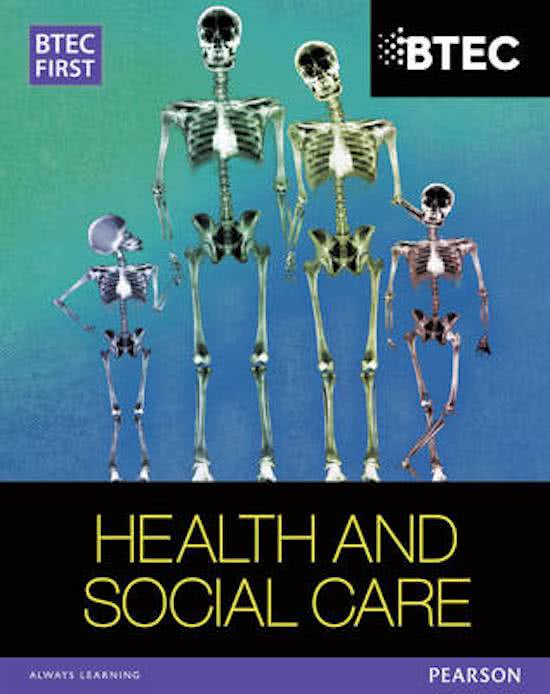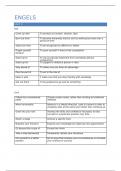Compare the effects of balanced and unbalanced diets on the health and wellbeing of two
individuals
Megan is a teenager who follows a balanced diet. She eats fruit and vegetables every day and
exercises to stay healthy. But she is a vegetarian, this means to remain healthy Megan needs to
replace the lost meat by making sure she has all the right vitamins and minerals. But there is a
downside to her been a vegetarian, she can have less energy and a lack of concentration. Compared
with Jim she has less health risks because of her diet. As she is a vegetarian she needs to replace the
lost meat by making sure she has all the right vitamins and minerals, if she did not eat these she
could end up fainting. Megan eats less protein and therefore might not grow enough and ending up
with flaky skin. Megan would not eat a lot of carbohydrates as a lot can make him feel blotted very
quickly. Effects of not enough carbohydrates include no energy, poor concentration, poor nervous
system, muscle tissue loss, dehydration and constipation. Fruits and vegetables are a major source of
important nutrients in the diet, including vitamins A, C, E and K, the mineral potassium and the
indigestible carbohydrate fibre. Lacking any one of the nutrients can lead to poor health. For
example, you need vitamin C to maintain tissue health and to aid in wound healing; vitamin A
supports eye health; vitamin E is a strong antioxidant vitamin that helps fight damaging free radicals
in the body; and vitamin K is essential for proper blood clotting. The mineral potassium is an
essential electrolyte that helps regulate fluids in the body and counteracts the negative effects of too
much sodium, another electrolyte, in the diet. Lastly, fibre, the indigestible part of fruit and
vegetables, promotes digestive health and can help reduce high cholesterol. Too many vegetables
and fruit can lead to cardiovascular disease. A vitamin deficiency can cause side effects such as high
blood pressure, cardiac arrhythmia, weakness in the muscles and muscle cramps. Hypoventilation,
nausea, headache, vomiting and increased carbon dioxide in the body can be associated with
chloride deficiency. Calcium deficiency can create side effects such as a sensation of pins and
needles on the skin, hyperactive reflexes and cardiac symptoms. Psychological symptoms such as
confusion are also possible and serious side effects associated with mineral deficiency. The biggest
problem Megan may face is a deficiency in protein as she would not get the protein from a variety of
sources such as meat and fish as this is one of the food groups that will help a person to gain weight.
Lack of protein can lead to stunted growth and flaky skin. Fats and sugar would not cause much
effect on Megan but it could cause tooth decay. Less milk and dairy can cause bone decay also
known as osteoporosis and tooth decay.
Jim however is an elderly, Jewish man and as a result of his diet he is at risk of stroke and diabetes.
He will also be at more risk of getting colds and infections because he does not eat enough vitamins.
He could also become constipated unless he eats more fruit and vegetables. Jim could also become
obese as a result of his unhealthy eating habits and lack of exercise. Too many carbohydrates could
lead to stroke and coronary heart disease. Too much fat and sugar can cause the heart to clog and
aspects of the hearty will die. It will also cut off oxygen supply to the brain, this can therefore cause a
stroke. Too many vitamins can result in hyperkalemia, which can produce serious symptoms
including heart palpitations, weakness and hyperventilation. Severe sodium surplus in the body can
induce seizures, but milder side effects include irritability and weakness. Too much calcium can
cause side effects including constipation, bone pain and kidney stones. Other general symptoms
include breathing difficulties, low blood pressure and heart problems. Fruits have about three times
the average calorie count of vegetables. Fruits and vegetables have unpleasant effects on the
digestive system that can lead to constipation or diarrhoea. Fruit also has acid in it- too much of this
individuals
Megan is a teenager who follows a balanced diet. She eats fruit and vegetables every day and
exercises to stay healthy. But she is a vegetarian, this means to remain healthy Megan needs to
replace the lost meat by making sure she has all the right vitamins and minerals. But there is a
downside to her been a vegetarian, she can have less energy and a lack of concentration. Compared
with Jim she has less health risks because of her diet. As she is a vegetarian she needs to replace the
lost meat by making sure she has all the right vitamins and minerals, if she did not eat these she
could end up fainting. Megan eats less protein and therefore might not grow enough and ending up
with flaky skin. Megan would not eat a lot of carbohydrates as a lot can make him feel blotted very
quickly. Effects of not enough carbohydrates include no energy, poor concentration, poor nervous
system, muscle tissue loss, dehydration and constipation. Fruits and vegetables are a major source of
important nutrients in the diet, including vitamins A, C, E and K, the mineral potassium and the
indigestible carbohydrate fibre. Lacking any one of the nutrients can lead to poor health. For
example, you need vitamin C to maintain tissue health and to aid in wound healing; vitamin A
supports eye health; vitamin E is a strong antioxidant vitamin that helps fight damaging free radicals
in the body; and vitamin K is essential for proper blood clotting. The mineral potassium is an
essential electrolyte that helps regulate fluids in the body and counteracts the negative effects of too
much sodium, another electrolyte, in the diet. Lastly, fibre, the indigestible part of fruit and
vegetables, promotes digestive health and can help reduce high cholesterol. Too many vegetables
and fruit can lead to cardiovascular disease. A vitamin deficiency can cause side effects such as high
blood pressure, cardiac arrhythmia, weakness in the muscles and muscle cramps. Hypoventilation,
nausea, headache, vomiting and increased carbon dioxide in the body can be associated with
chloride deficiency. Calcium deficiency can create side effects such as a sensation of pins and
needles on the skin, hyperactive reflexes and cardiac symptoms. Psychological symptoms such as
confusion are also possible and serious side effects associated with mineral deficiency. The biggest
problem Megan may face is a deficiency in protein as she would not get the protein from a variety of
sources such as meat and fish as this is one of the food groups that will help a person to gain weight.
Lack of protein can lead to stunted growth and flaky skin. Fats and sugar would not cause much
effect on Megan but it could cause tooth decay. Less milk and dairy can cause bone decay also
known as osteoporosis and tooth decay.
Jim however is an elderly, Jewish man and as a result of his diet he is at risk of stroke and diabetes.
He will also be at more risk of getting colds and infections because he does not eat enough vitamins.
He could also become constipated unless he eats more fruit and vegetables. Jim could also become
obese as a result of his unhealthy eating habits and lack of exercise. Too many carbohydrates could
lead to stroke and coronary heart disease. Too much fat and sugar can cause the heart to clog and
aspects of the hearty will die. It will also cut off oxygen supply to the brain, this can therefore cause a
stroke. Too many vitamins can result in hyperkalemia, which can produce serious symptoms
including heart palpitations, weakness and hyperventilation. Severe sodium surplus in the body can
induce seizures, but milder side effects include irritability and weakness. Too much calcium can
cause side effects including constipation, bone pain and kidney stones. Other general symptoms
include breathing difficulties, low blood pressure and heart problems. Fruits have about three times
the average calorie count of vegetables. Fruits and vegetables have unpleasant effects on the
digestive system that can lead to constipation or diarrhoea. Fruit also has acid in it- too much of this



